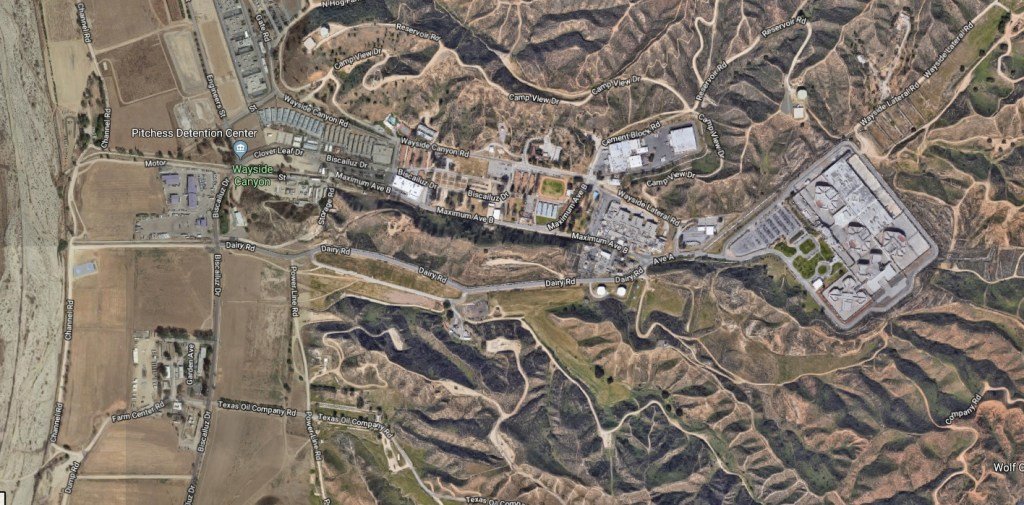A Los Angeles Deputy’s Betrayal: Unraveling a Corruption Scandal Within the Jail System
On a seemingly mundane day in April 2024, Los Angeles County sheriff’s deputy Michael Meiser made a series of fateful decisions that would unravel not only his career but also expose the insidious nexus between law enforcement and the Mexican Mafia operating within the sprawling confines of county jails. Surveillance footage caught him, a trusted officer of the law, covertly exchanging a package with a woman at a gas station—an act that would ultimately lead to his undoing and reverberate through California’s law enforcement community.
A Complex Web of Deceit
As Meiser navigated the labyrinthine realities of his profession, he found himself ensnared in a broader investigation spearheaded by the FBI and the L.A. Sheriff’s Department. This comprehensive two-year probe unveiled a “sophisticated drug smuggling operation involving Mexican Mafia associates,” as articulated by U.S. District Attorney Nathan Hochman. The case has sparked urgent conversations regarding systemic corruption, prompting scholars and experts to delve into the vulnerabilities within the correctional system.
Inside the Smuggling Operation
According to court documents, Meiser was under close scrutiny well before he was arrested. Investigators had started tracking him after his interactions with inmates, particularly with Jackie Triplett, an alleged member of the Mexican Mafia. During monitored conversations, coded language emerged that suggested discussions about illegal activities disguised as innocuous banter—“picking up Dodgers tickets” euphemized the delivery of drugs.
The intricacies of drug smuggling behind bars are chilling. An anonymous expert in criminal justice explained, “When law enforcement officers become complicit, they create a maze of compromised integrity. The only immunity they have is the trust the public places in them, which they can shatter with a single illicit act.” This statement underscores the fragility of public faith in law enforcement, a concern echoed in numerous studies linking corruption in police forces to broader social outcomes.
- Corruption undermines public safety: Communities suffer when law enforcement is perceived as complicit in crime.
- Vulnerability in correctional systems: Insufficient oversight and staffing lead to opportunities for smuggling.
- Cycle of mistrust: Community disconnection from law enforcement exacerbates crime rates.
The Arrest and Its Implications
On April 30, 2024, during the regular routine of his shift, Meiser’s facade began to crumble. Authorities intercepted him as he attempted to leave with a substantial stash: $15,000 in cash, a loaded handgun, and an alarming quantity of heroin concealed within Pringles cans—an event that shook the foundation of public trust in local law enforcement.
Dr. Sophia Reyes, a criminologist who focuses on the ramifications of police corruption, emphasizes the significance of this incident. “Meiser’s case will not only serve as a legal precedent but also as a harbinger of the accountability necessary to mend the trust broken by those who betray their oath,” she remarked. The implications of Meiser’s actions extend beyond his personal guilt; they echo through the entire system, signaling a need for increased transparency and radical reform.
Lessons Learned or Forgotten?
The fallout from Meiser’s arrest leads to critical inquiries into systemic weaknesses that allow individuals to abuse their positions. What mechanisms were overlooked that could have thwarted such conspiracies? As of now, law enforcement agencies across the nation are left grappling with answers.
Recommendations for Reform
In light of the gaps exposed by Meiser’s affiliation with the Mexican Mafia, experts argue for a holistic approach to reform, including:
- Enhanced Oversight: Implementing independent oversight of correctional facilities to ensure compliance with ethical standards.
- Rigor in Recruitment: Revising hiring protocols for law enforcement personnel to screen for potential vulnerabilities.
- Regular Training: Continuous education on ethics and integrity for active officers.
A Glimpse into the Future
The fate awaiting Meiser, who faces up to 40 years in federal prison, reflects a burgeoning intolerance for criminal behavior within law enforcement. However, the repercussions of his actions extend far beyond personal consequence, challenging a system already frayed by trust issues. As officials aim to restore integrity to the justice system, one can only hope that such scandals serve as a wake-up call. The overarching lesson from this saga underlines the harsh reality: corruption infects the sacred trust between communities and those entrusted to protect them. Without concerted efforts to reinstate ethical standards, the cycle of betrayal is bound to repeat, jeopardizing public safety and leading us into a societal quagmire.









